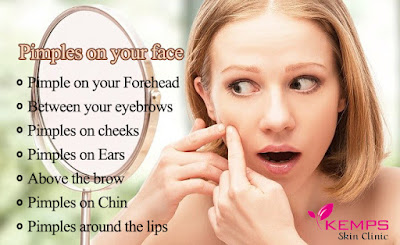Many winter allergens or irritants can result in allergic rhinitis or hay fever as it is more commonly known. Allergic rhinitis occurs when the body's immune system overreacts to a certain substance.
Sometimes the immune system incorrectly identifies substances or even parts of the body as a threat, causing an allergic skin reaction to occur. Here is a breakdown of a number of skin allergies:
Eczema: Eczema occurs when the skin doesn't retain enough moisture and becomes dry, itchy and inflamed. The skin is also scaly and cracked. Eczema is commonly found in the creases of the arms and legs. This chronic skin allergy goes through periods of flare-ups and remissions. Many people are born with a skin condition as a result of genetics or develop it during early childhood. This may be due to exposure to harmful chemicals or allergens. While most children outgrow their eczema, some retain it throughout adulthood.
Dermatographia: Dermatographia or "skin writing", Occurs when the mast cells in the skin produce too much histamine. The histamine is released with any form of stimulation or pressure applied to the skin. What results is inflammation and itchiness of the skin? The reaction can be identified as white or red inflamed lines on the skin.
Hives: Similar to dermatographia, hives or urticaria is a skin allergy that produces raised wheels in the skin. These wheels may vary in size; they are accompanied by itchiness and commonly occur on the arms and legs. The body produces these hives when the mast cells of the skin produce too much histamine. However, when large amounts of chemicals are released by these cells to combat the allergen, fluid leaks into the bloodstream, which may cause anaphylaxis.



















